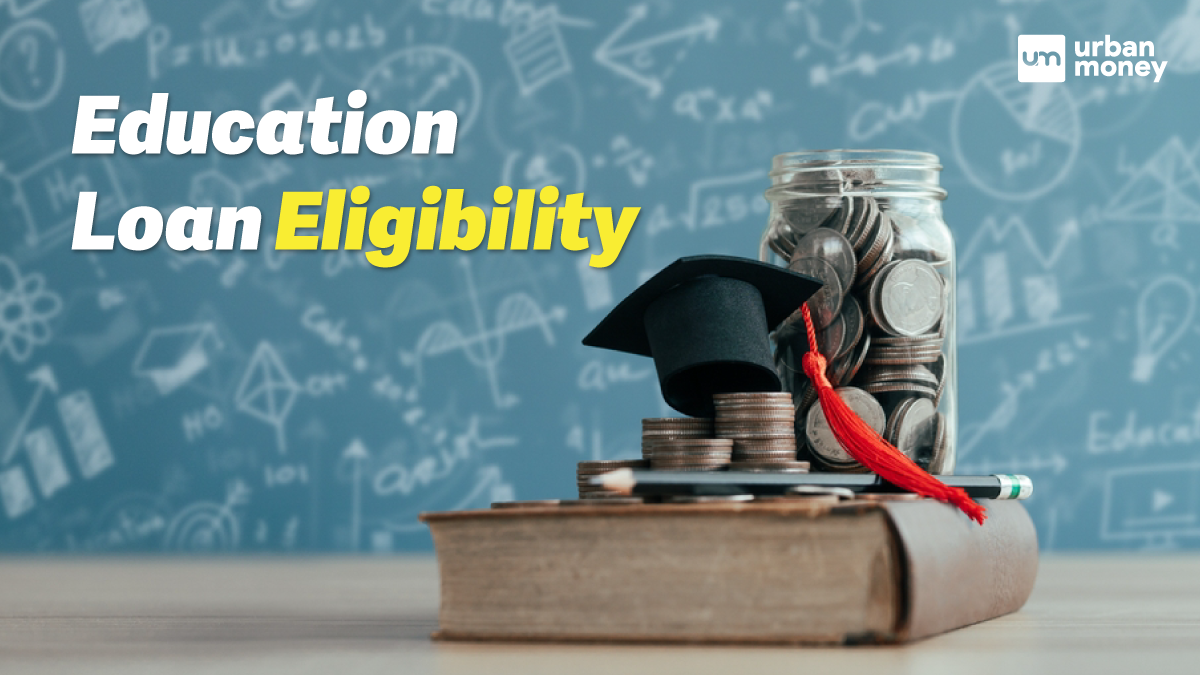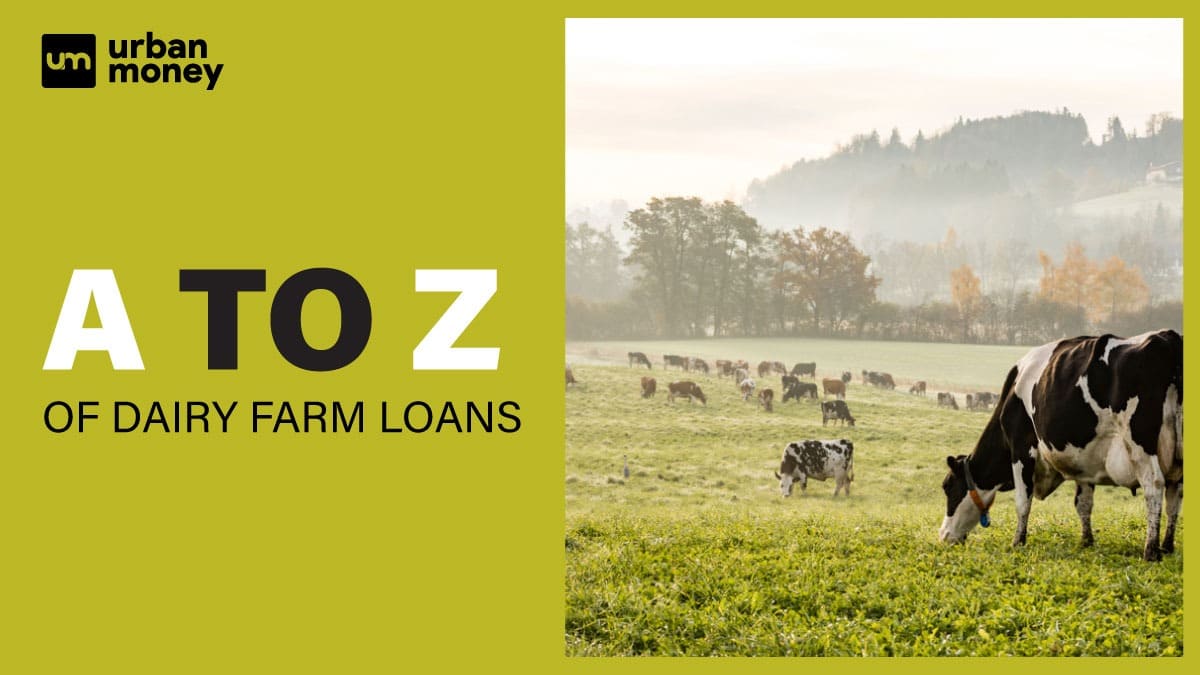Top 10 Best Private Banks in India List 2025
January 09, 2025
May 30, 2025


Education loan eligibility is important for students and parents who want to fund higher education without financial stress. With rising education costs, understanding the eligibility criteria for education loans can significantly affect planning. This guide will help you check if you are eligible for an education loan. It will also explain what banks look at before they approve your application.
In India, to get an education loan, you need to meet certain criteria. These include your academic performance, the course you are taking, and the institution you are joining. Different banks have different rules. So, it is important to know the education loan eligibility in India for your bank. Many banks provide online tools like an education loan eligibility calculator to help you quickly assess your chances.
When applying for an education loan in India, it’s important to understand the common requirements for qualifying. Here are the key criteria that most banks and financial institutions look for:
Indian Citizenship
The applicant must be a resident of India. Some lenders also offer loans to non-resident Indians (NRIs) with valid Indian passports.
Age Limit
Applicants typically must be between 18 and 35. Some institutions have slightly different age criteria.
Admission to a Recognised Institution
The student must have secured admission to a recognised educational institution in India or abroad. UGC, AICTE, or other relevant authorities should recognise the institution.
Academic Performance
Many lenders require a minimum percentage in qualifying exams, such as 60% in board exams for undergraduate courses. This is a key part of the education loan eligibility criteria for students.
Co-Applicant Requirement
Full-time students need a co-applicant who can be a parent, guardian, or spouse. The co-applicant must have a regular source of income to serve as a guarantor for the loan.
Course and Institution Type
The loan is generally available for courses that lead to a degree or diploma recognised by government or university authorities. Courses can include undergraduate, postgraduate, and vocational studies.
Collateral Security
Depending on the loan amount, some banks may require collateral such as property, fixed deposits, or other assets to secure the loan. Unsecured loans are also available but usually come with higher interest rates.
Documentation
Essential documents include proof of identity (e.g., PAN card, Aadhaar card), proof of residence (e.g., utility bills), academic records, admission letter, and income proof of the co-applicant. A detailed list of expenses related to the course is also required. This helps in understanding how to check education loan eligibility.
When applying for an education loan, it’s essential to meet the eligibility criteria and provide specific documents. Here are the documents you need to ensure a smooth application process.
Identity Proof:
Aadhar Card, PAN Card, Passport, Voter ID, or Driving License.
Address Proof:
Aadhar Card, Passport, Voter ID, or Utility Bill (Electricity, Water, Telephone).
Income Proof:
Latest salary slips, Income Tax Returns (ITR), Form 16, or bank statements.
Academic Records:
Marksheets from the last qualifying examination, admission letter from the educational institution, and fee structure.
Collateral Documents:
If applicable, property papers or fixed deposit receipts offered as security.
Co-applicant Documents:
Identity, address, and income proofs of the co-applicant—usually a parent or guardian.
Proof of Admission:
An admission letter from the educational institution confirming your seat. This verifies the loan is for a genuine course and meets the eligibility criteria.
Bank Statements:
Bank statements for the last 6 months of both the applicant and co-applicant. These help assess financial stability as part of the loan eligibility.
When applying for an education loan, there are additional eligibility factors to consider that can impact your loan approval:
Course Duration
The length of your course can influence your education loan eligibility. Longer courses may require more extensive financial planning and collateral.
Future Earning Potential
Banks often assess the potential income you can earn after completing your course. High-demand fields like engineering, medicine, or IT may improve your eligibility.
Co-Applicant’s Financial Health
Beyond just having a co-applicant, their credit score, income stability, and existing liabilities are crucial additional eligibility factors banks consider.
Collateral Availability
Having collateral like property or fixed deposits can improve your chances of getting education loans. This is especially true for larger loan amounts.
Past Loan History
A good credit history with timely repayments on past loans, if any, can positively affect your eligibility.
If you are an Indian student aiming to study abroad, you need to meet certain eligibility criteria that apply:
Academic Qualifications
You must have completed your 12th standard (or equivalent) with good grades. The exact academic requirements may vary depending on the course and country you are targeting. In English-speaking countries, you may need to pass exams like the GRE, GMAT, or language tests such as IELTS or TOEFL.
Admission to Recognised Institutions
Before applying for an education loan, you must have a confirmed admission letter from a recognised foreign university. Banks require this to prove you are eligible for the course you wish to pursue.
Indian Citizenship
You must be an Indian citizen. This is a basic requirement for most education loans offered by Indian banks.
Age Criteria
Most banks allow people aged 18 to 35 to apply for an education loan. However, this age range may vary a bit by bank.
Co-applicant Requirement
As an Indian student, you are usually required to have a co-applicant who is an Indian citizen. This could be your parent, guardian, or a close relative with a stable income. The co-applicant’s financial standing is also very important for the loan approval process.
Financial Stability
Banks may require collateral such as property or fixed deposits for larger loan amounts. However, loans up to INR 7.5 lakh often do not require collateral. Some banks may offer unsecured loans beyond this amount based on your profile and the course’s future earning potential.
Documentation
You will need to provide various documents, including identity, address, income proof of the co-applicant, academic records, admission letter, and, in some cases, collateral documents.
Loan Margin
For loans above INR 4 lakh, students are typically required to cover a portion of the total expenses (known as the margin). This margin usually ranges from 5% to 15%, depending on the bank and the total loan amount.
In India, education loan eligibility often comes with certain unique cases and exemptions:
Non-Traditional Courses
Loans may be available for vocational or diploma courses but require stricter conditions, like higher collateral.
Age Flexibility
While the usual age limit is 18–35 years, some banks may offer loans to older students, especially in high-demand fields.
Collateral-Free Loans
Students admitted to top institutions or those with outstanding academic records may get loans without needing collateral.
Co-Applicant Flexibility
Banks sometimes allow siblings or other close family members as co-applicants if parents don’t qualify.
Pre-Admission Loans
Banks like HDFC Credila offer provisional loan approvals before securing admission, helping students meet early financial requirements.
To make your education loan application process smoother, avoiding any silly errors that can hamper the process and delay the disbursement of funds is essential. Some of the common avoidable mistakes are:
Incomplete Documentation
Failing to submit all required documents, such as income proof or admission letters, can delay or even reject your loan application. Always ensure you have all the necessary paperwork.
Ignoring the Co-Applicant Requirement
Many banks require a co-applicant with a stable income, usually a parent or guardian. Meeting this requirement can help you get your loan approved.
Misjudging the Education Loan Eligibility Age Limit
Ensure you fall within the bank’s specified age range, typically 18 to 35 years, or your application may be rejected.
Choosing Unrecognised Institutions
Loans are often only approved for courses at recognised institutions. Ensure your chosen college or university is on the bank’s approved list.
Neglecting to Use an Education Loan Eligibility Calculator
This tool helps you understand if you qualify for the loan based on factors like your course, institution, and financial status. Skipping this step can lead to unrealistic expectations.
Improving your education loan eligibility can increase your chances of securing the funds you need for higher studies. Here are some effective strategies:
Maintain Strong Academic Records
Banks favour students with good grades. A consistent academic performance can significantly enhance your eligibility for education loans.
Choose a Recognised Institution
Admission to a reputed or government-recognised university can boost your education loan eligibility. Banks are more likely to approve loans for students attending well-known institutions.
Secure a Co-Applicant with a Stable Income
A co-applicant, such as a parent or guardian with a reliable income, is crucial. Their financial stability directly impacts your loan approval.
Reduce Existing Debt
If you or your co-applicant have existing loans, try to reduce them. Lower debt improves your financial profile and makes you a more attractive candidate for a loan.
Here are the top 10 student loan options from reputed banks to help fund your higher education with ease.
| Bank Name | Student Loan Offer |
|---|---|
| Punjab & Sind Bank | Punjab & Sind Bank Students Personal Loan |
| Karur Vysya Bank | Karur Vysya Bank Students Personal Loan |
| RBL Bank | RBL Bank Student Personal loan |
| Karnataka Bank | Karnataka Bank Students Personal Loan |
| Bank of Maharashtra | Bank of Maharashtra Student Personal Loan |
| Bank of India | Bank of India Students Personal Loan |
| Punjab National Bank (PNB) | PNB Students Personal Loan |
| Indian Bank | Indian Bank Students Personal loan |
| IDBI Bank | IDBI Bank Students Personal loan |
| Union Bank of India | Union Bank Students Personal loan |
Conclusion
Understanding and meeting the education loan eligibility criteria is essential for students and parents to fund higher education without financial stress. Focusing on maintaining strong academic records, choosing recognised institutions, and securing a reliable co-applicant can significantly improve your chances of loan approval. Avoiding mistakes like incomplete documentation and using an education loan eligibility calculator can also streamline the application process. Whether planning to study in India or abroad, these strategies will help you secure the necessary funds for your educational journey.
Typically, you need to be between 18 and 35 years old to meet education loan eligibility.
Most education loans cover undergraduate, postgraduate, and professional courses recognised by government or university authorities.
Some banks require a minimum score on entrance exams like the GRE, GMAT, or SAT to qualify for an education loan.
Yes, but it depends on the bank and whether the distance learning program is from a recognised institution.
To be eligible for education loans, your college or university must be recognised by authorities like UGC or AICTE.
You can apply for another education loan if you meet the eligibility criteria and your financial profile supports it.
The co-applicant typically needs a stable income, though the minimum amount varies by bank.
Education loans can cover living expenses, including accommodation and daily living costs, as part of the overall loan amount.









Top 10 Best Private Banks in India List 2025
January 09, 2025

Top10 List of Petrol Pump Companies in India
January 09, 2025

Dairy Farm Loan in 2025 : Online Procedure
January 09, 2025

Top 10 Best Bank for Home Loan In India…
January 09, 2025

Top10 Best Student Credit Cards in India 2025
January 09, 2025
© 2026 www.urbanmoney.com. All rights reserved.

Need Loan Assistance?